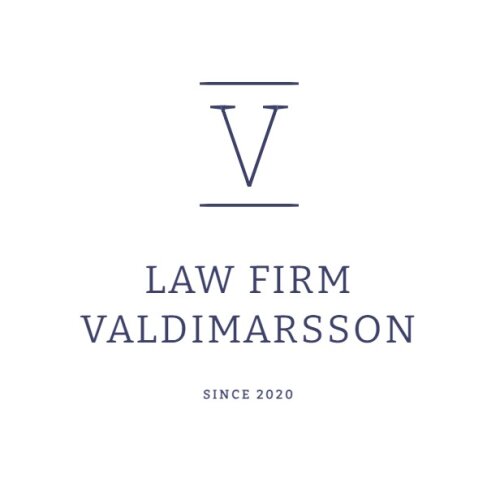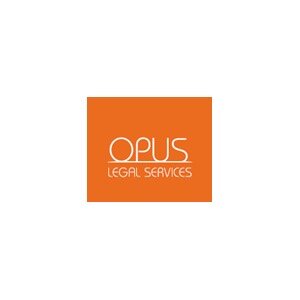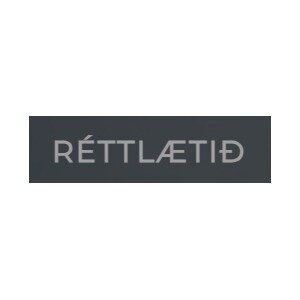Best White Collar Crime Lawyers in Reykjavik
Share your needs with us, get contacted by law firms.
Free. Takes 2 min.
List of the best lawyers in Reykjavik, Iceland
About White Collar Crime Law in Reykjavik, Iceland
White Collar Crime refers to financially motivated, non-violent crime typically committed by business and government professionals. In Reykjavik, Iceland, these crimes may include fraud, embezzlement, bribery, insider trading, and money laundering. The legal landscape for White Collar Crime in Reykjavik is stringent, focusing on maintaining economic integrity and public trust. Icelandic law enforcement and judicial systems work diligently to investigate, prosecute, and prevent such crimes to ensure a fair and transparent business environment.
Why You May Need a Lawyer
Individuals and organizations may need a lawyer in various situations involving White Collar Crime. Common scenarios include:
- Being accused of committing a White Collar Crime.
- Facing an investigation by law enforcement or regulatory agencies.
- Seeking defense against charges or allegations of financial misconduct.
- Providing legal compliance and advisory services to avoid potential white-collar legal issues.
- Assisting in internal company investigations to uncover and address fraudulent activities.
An experienced lawyer can help navigate complex legal procedures, provide representation in court, and offer advice to mitigate legal risks.
Local Laws Overview
The legal framework in Reykjavik, Iceland, specifically pertaining to White Collar Crime, consists of various laws and regulations designed to combat financial misconduct. Key aspects include:
- Penal Code: Iceland's Penal Code outlines the definitions and penalties for many White Collar Crimes, including fraud, embezzlement, and bribery.
- Anti-Money Laundering Laws: Strict regulations exist to prevent money laundering activities, with obligations for financial institutions to report suspicious transactions.
- Financial Supervisory Authority: This body oversees compliance with financial regulations and can conduct investigations into suspected misconduct.
- Corporate Governance Regulations: These ensure companies operate transparently, with mechanisms to prevent and detect fraud.
Frequently Asked Questions
What is considered White Collar Crime in Reykjavik, Iceland?
White Collar Crime includes non-violent crimes such as fraud, embezzlement, bribery, insider trading, and money laundering, typically committed by business and government professionals.
What are the penalties for White Collar Crimes in Iceland?
Penalties can range from fines and restitution to imprisonment, depending on the severity of the crime and the specific charges involved.
Can companies face charges for White Collar Crimes?
Yes, companies can be held liable for White Collar Crimes, particularly if they are found to have engaged in or facilitated the illegal activities.
How can a lawyer help in a White Collar Crime case?
A lawyer can provide legal representation, defend against charges, negotiate settlements, and offer advice on regulatory compliance to minimize legal risks.
What should I do if I am under investigation for a White Collar Crime?
Seek legal counsel immediately to protect your rights and receive guidance on how to proceed with the investigation and any potential charges.
Is it mandatory to report suspected White Collar Crime?
In many cases, yes. Financial institutions and businesses have legal obligations to report suspicious activities to the relevant authorities.
How are White Collar Crimes investigated in Iceland?
Investigations are typically conducted by law enforcement agencies, in collaboration with the Financial Supervisory Authority and other regulatory bodies.
Can whistleblowers face consequences for reporting White Collar Crime?
Whistleblowers are generally protected by law, provided they report misconduct in good faith. However, each case is unique and legal advice may be beneficial.
What is the role of the Financial Supervisory Authority in White Collar Crime?
The Financial Supervisory Authority oversees compliance with financial regulations, conducts investigations, and enforces penalties for regulatory breaches.
Are there preventative measures companies can take to avoid White Collar Crime?
Yes, companies can implement strong corporate governance practices, conduct regular audits, and provide employee training on ethical standards and legal compliance.
Additional Resources
For more information and assistance regarding White Collar Crime in Reykjavik, consider reaching out to the following resources:
- Financial Supervisory Authority (FME): Iceland’s financial regulatory authority overseeing financial institutions and markets.
- The Icelandic Bar Association: A professional organization that can help connect you with experienced lawyers specializing in White Collar Crime.
- National Commissioner of the Icelandic Police: The main body responsible for criminal investigations, including financial crimes.
- Transparency International Iceland: An organization focusing on combating corruption and promoting transparency.
Next Steps
If you require legal assistance in matters related to White Collar Crime, follow these steps:
- Contact a Lawyer: Seek out an experienced attorney who specializes in White Collar Crime in Reykjavik. The Icelandic Bar Association can help you find a suitable legal representative.
- Gather Documentation: Collect any relevant documents, records, and evidence related to the case. This information will be crucial for your lawyer to build a defense or provide advice.
- Request a Consultation: Schedule a meeting with your lawyer to discuss your case, understand your legal position, and outline the next steps.
- Follow Legal Advice: Adhere to the advice and strategies provided by your lawyer to ensure the best possible outcome in your situation.
- Stay Informed: Keep yourself updated on any developments in your case and maintain open communication with your lawyer throughout the process.
Lawzana helps you find the best lawyers and law firms in Reykjavik through a curated and pre-screened list of qualified legal professionals. Our platform offers rankings and detailed profiles of attorneys and law firms, allowing you to compare based on practice areas, including White Collar Crime, experience, and client feedback.
Each profile includes a description of the firm's areas of practice, client reviews, team members and partners, year of establishment, spoken languages, office locations, contact information, social media presence, and any published articles or resources. Most firms on our platform speak English and are experienced in both local and international legal matters.
Get a quote from top-rated law firms in Reykjavik, Iceland — quickly, securely, and without unnecessary hassle.
Disclaimer:
The information provided on this page is for general informational purposes only and does not constitute legal advice. While we strive to ensure the accuracy and relevance of the content, legal information may change over time, and interpretations of the law can vary. You should always consult with a qualified legal professional for advice specific to your situation.
We disclaim all liability for actions taken or not taken based on the content of this page. If you believe any information is incorrect or outdated, please contact us, and we will review and update it where appropriate.












